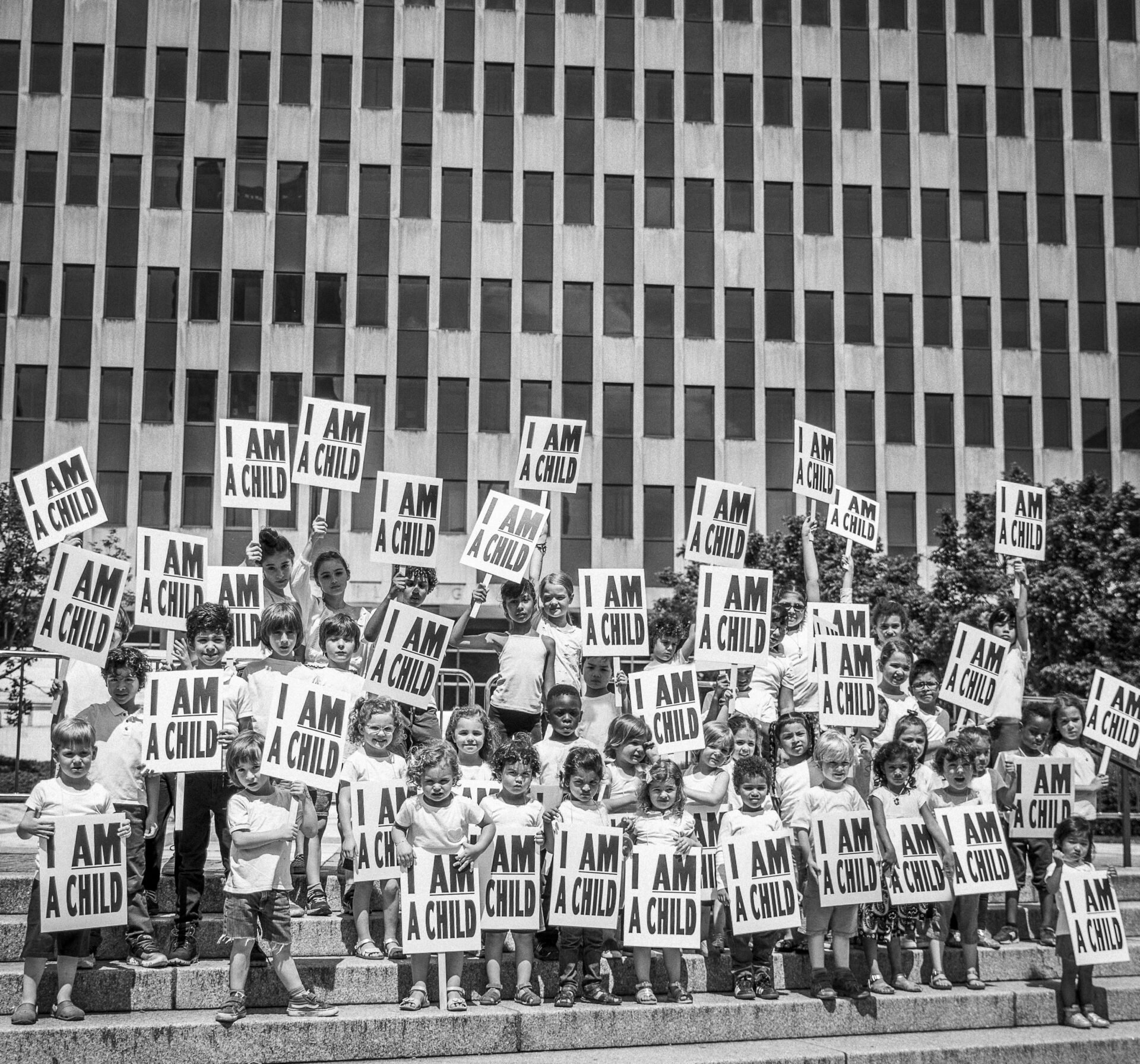Better Together: Families, Immigration, and Community in the U.S.

by Porshéa Patterson-Hurst, The Opportunity Agenda
If you cross the border unlawfully, then we will prosecute you…If you’re smuggling a child, then we will prosecute you and that child will be separated from you as required by law.
These are just a few words from the Trump administration, which has recently instated a ‘zero tolerance’ policy toward migrants crossing the U.S.- Mexico border. Often, these migrant families arrive from the “Northern Triangle” of Central America, with 32% from Guatemala, 29% from El Salvador, 18% from Honduras, and 20% from Mexico, where they are fleeing inhumane conditions[1]. The new enforcement of the ‘zero tolerance’ policy leads to immediate prosecution of immigrants, including parents traveling with small children[2], culminating in the separation of children – including infants — from their parents. The children are labelled thereafter as “unaccompanied minors,” and their parents are thrown into the anguishing situation of trying to find and reunite with them.
The cruel implementation of the ‘zero tolerance’ policy often leaves children as young as 18 months old without any contact with their detained parent and parents without any idea of their child’s whereabouts. Most migrant families must rely on pro bono legal assistance in separate cases for adults and children — even when they are related. Available data indicates that pro bono representation is crucial for the cases of young children, as almost 50% of unaccompanied children are unrepresented by counsel during any point of their court process and are deported in 28% of cases when they have legal representation and in 77% of cases when they did not have an attorney present[1]. The younger a child is without legal representation, the more likely they are to be deported.
Immigration records show that so far this year, 700 families have been separated, including at least 100 children younger than 4. At least 600 children have been taken from their parents in the last month of the ‘zero tolerance’ policy enforcement. This policy has resulted in parents desperately attempting reentry to find their children after they have become lost in the U.S. immigration system. Due to a huge backlog of cases in the courts, adults are often deported much earlier than children.
It is of critical importance that we can counter the actions and words of the current administration by building on the respect and dignity that everyone deserves as part of their human rights.
Recent media coverage of family separation and the detention of children has resulted in national outcry, with many commentators questioning how such inhumane treatment could take place. However, our own research examining the portrayals of immigrants shows that the criminalization of particular immigrant communities is widespread in popular cultural, with Latinx immigrants significantly more likely to be tied to storylines about unlawful activities and are depicted participating in unlawful acts. Further actions by the current administration, notably Trump’s tendency to align immigrants to gang members, not only stigmatizes young migrants as criminals, it also enforces public discrimination and indifference to their struggles.
It is of critical importance that we can counter the actions and words of the current administration by building on the respect and dignity that everyone deserves as part of their human rights. In order to be effective in these efforts, we must speak out against discrimination and scapegoating when we see it and support the defense needs of unaccompanied children by promoting organizations like The Florence Project and Kids in Need of Defense.
Instead of denigrating the efforts of those who are forced to cross the border in pursuit of better opportunities, the media should promote immigrants’ rights to seek asylum in the U.S. As Representative Joaquin Castro, D-Texas, recently stated, “just because somebody crosses a border, [it] doesn’t make them nonhuman.”
We must stand for living within a country where aggressive and racialized immigration enforcement that results in family separation ceases to exist. It can be done, and it starts with us. As an electorate, we are also responsible for tracking of pending legislation like the Goodlatte bill, which would make it harder for DACA recipients to join the pathway towards citizenship as well as a Republican ‘compromise’ bill that would increase the standard of proof needed for migrants to apply for asylum and eliminate current legislation that restricts the government from deporting Central American children to Mexico, if it is not their country of origin. Standing with DREAMers means standing with the children that are being ripped apart from their parents’ arms and put in detention. It means standing against increased enforcement and the criminalization of immigrants.
[1] Ataiants, J., Cohen, C., Riley, A. H., Lieberman, J. T., Reidy, M. C., & Chilton, M. (2017). Unaccompanied children at the United States border, a human rights crisis that can be addressed with policy change. Journal of immigrant and minority health, 1-11.
[2] Chavarria, A. F. (2017). The Treatment of Children Detained by United States Immigration Authorities and the Consequences and Challenges. Today’s Children are Tomorrow’s Parents.
[3] Ataiants, J., Cohen, C., Riley, A. H., Lieberman, J. T., Reidy, M. C., & Chilton, M. (2017). Unaccompanied children at the United States border, a human rights crisis that can be addressed with policy change. Journal of immigrant and minority health, 1-11.


